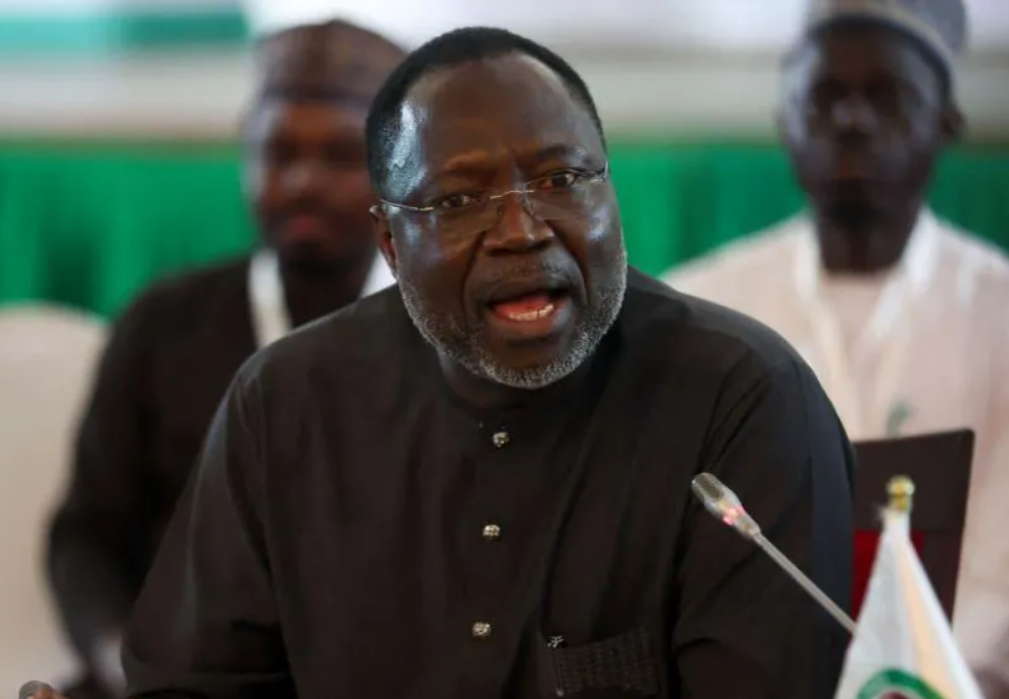As Burkina Faso, Mali, and Niger Declare Independence, Ecowas Could Collapse
Burkina Faso, Mali, and Niger have formally decided to split away and form their own union, which poses a big challenge to the West African bloc Ecowas (Economic Community of West African States). There are growing concerns that this development could lead to the regional organization’s collapse and worsen security challenges in the area, which has been going on for 50 years.
The Worries of eco was Leadership.
According to the head of the Ecowas Commission, this is a major setback for the organization and might have serious repercussions if not undone. The military chiefs of these three countries announced their exit from the 15-member Ecowas over the weekend, marking an “irrevocable” step towards forming a new confederation of their states.
Context and Reaction to Coups
Between 2020 and 2023, a succession of coups in Burkina Faso, Mali, and Niger established military administrations. Ecowas responded by imposing penalties and calling for an immediate transition back to civilian authority. Military involvement was even proposed by the bloc but eventually rejected. Ecowas is currently in talks with the juntas about scraping their intention to leave the organization, and certain sanctions have been lifted in the meantime.
Regional Security and Mobility Consequences
Ecowas officials are sounding the alarm that the secession could derail the bloc’s integration efforts by severely limiting people’s ability to move around the region freely. Furthermore, cooperation in fighting regional insecurity, especially through sharing intelligence, can be hampered by this split. In a recent speech, Omar Alieu Touray, president of the Ecowas Commission, brought attention to the grave dangers of regional fragmentation.
The Struggles and Achievements of Mediation
Ecowas nominated Senegalese President Bassirou Diomaye Faye to mediate the conflict. The announcement of his appointment was made during the Ecowas meeting in Abuja, Nigeria. The three breakaway states’ military rulers look up to Faye since she is from the same generation as them and can empathize with their problems. He goes on to say that he shares their suspicions about the impact of Western nations in the area, especially France, which ruled the four countries in question during its colonial era.
Changes in Military Sympathies
In their quest to counter terrorist groups, the three militarily-led nations have resorted to Russia for military assistance after expelling French troops. This shift has further complicated the regional security picture. In a similar development, the German defense ministry has said that, due to failed talks with the junta in charge of Niger, the German soldiers will evacuate the country by the end of next month. Withdrawing forces from an air base in Niamey and concentrating them at a drone facility in Agadez, the United States has likewise diminished its military presence in the region.
Seeking New Collaborations
To tackle the political, economic, and security issues confronting West Africa and the wider Sahel area, President Bola Tinubu of Nigeria, who was recently reappointed as chairwoman of Ecowas, emphasized the significance of developing new alliances. These problems have had a disproportionate impact on the semi-arid Sahel region, which is situated south of the Sahara Desert.
The Sahel States’ Alliance is Formed
The Alliance of Sahel States was formed on Saturday with the treaty signatures of Burkina Faso, Mali, and Niger. Free movement of people among the three nations is one of the primary goals of this agreement, which is why the parties involved have worked to establish shared institutions and infrastructure. Unless a new agreement is reached, the inhabitants of these nations will no longer be able to live and work in the other member states of Ecowas in the event that they depart.
Problems with Regional Safety
Concerns about jihadist organizations potentially using the porous Sahel borders to extend their operations into neighboring nations have governments in West Africa worried about the stability of the region. An important justification given by the military for assuming control was the disproportionate impact of Islamist insurgencies on the nations led by the junta.
The State of Ecowas
Adama Gaye, a former director of communications for Ecowas, said that the three countries were founding members of Ecowas, which was formed in 1975, and that the formation of the junta’s confederation was a “very big blow” to the bloc. Since many of the member states of the bloc are not “true democracies,” he said, this is largely because Ecowas pushed the military-led nations to hold fair and free elections. Gaye stressed that Ecowas must safeguard its reputation so it does not end up as an institutional “laughing-stock.”
As it faces enormous internal and external obstacles, the fate of Ecowas is uncertain as it attempts to maintain regional unity and security in the face of this complicated and ever-changing environment.













